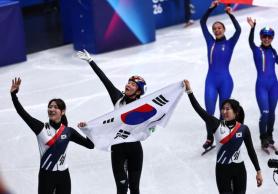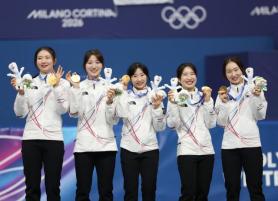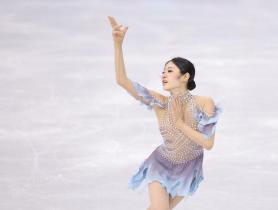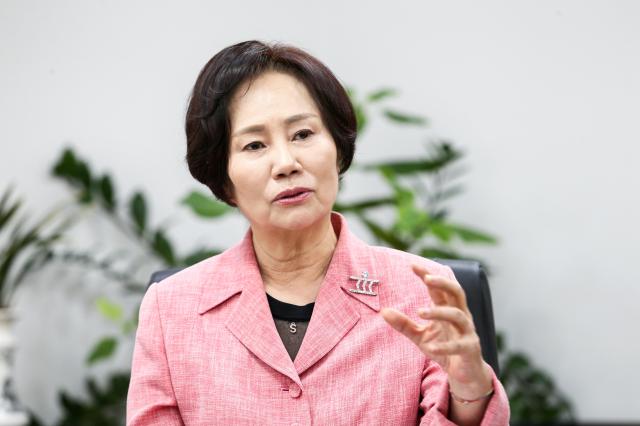
Lee Jeong-han, president of the nation's leading female business lobby, observed many women entrepreneurs remain focused on domestic markets, with only a small fraction expanding abroad.
"As of 2022, women-led businesses derived only 2.6 percent of their revenue from exports, and just 1.9 percent had export experience," Lee said in an interview with AJP.
"This stark reality underscores the urgency for women-owned enterprises to explore international markets to ensure their survival and growth amid economic downturns and shrinking domestic markets," she added.
Lee highlighted KWEA's efforts to support women-owned businesses, including Women Entrepreneurs Week.
The third annual festival, held in July across 19 cities and regions, including Seoul, invited foreign female ambassadors and representatives to help women-led businesses explore overseas markets and expand their international networks.
KWEA also hosted the Global Acceleration program, which includes a women's startup competition aimed at discovering and supporting outstanding female entrepreneurs. The program provides commercialization assistance and offers global acceleration for startups seeking to enter international markets.

"It recently entered the Japanese market successfully, and with its strong product quality and marketing efforts, the company is expected to grow further in the future," she said.
Another notable company is Gyodong CM, which is dedicated to introducing traditional Korean sweets to global customers.
With over 90 percent of production done by hand using domestically sourced ingredients, Lee noted that its brand, Gyodong Hangwa, has secured a place in major department stores and CJ Olive Young, a leading health and beauty retail chain in Korea.
With support from the Ministry of SMEs and Startups, KWEA has also organized a mentoring program for students from high schools and universities to foster future women business leaders.
"This program's unique feature is that experienced female CEOs serve as mentors, directly aiding the growth of female students aspiring to become future entrepreneurs," she said.
Established in 1999, KWEA assists women entrepreneurs with starting and expanding their businesses and provides management training. The association has around 9,400 member companies.
Lee's term as president of KWEA ends at the end of the year, after which she will return to her company, BY Industries, which specializes in the distribution and processing of metal sheets.
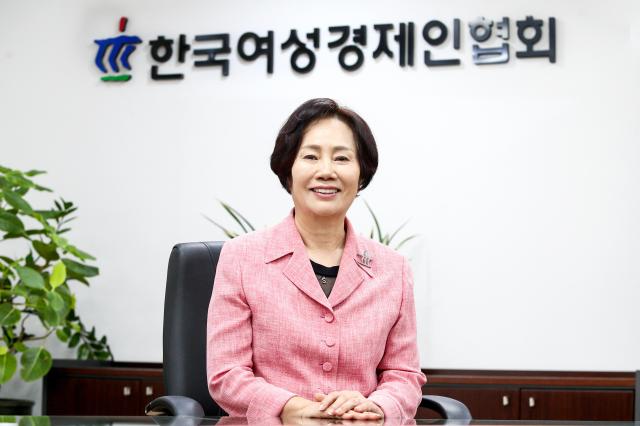
In her company, men typically made management decisions and held key sales roles. She sometimes received worse treatment than insurance salespersons from customers because of her gender, she added.
Despite such challenges, Lee did her utmost to earn the trust of her employees by studying late, preparing meals and working long hours.
When the company was on the brink of collapse, she learned skills such as truck driving and welding from her employees to help turn things around. Thanks to these efforts, BY Industries has grown into an enterprise with annual sales of 10 billion won ($7.5 million).
Lee views fostering women-led businesses as essential for sustained economic development and societal progress.
"Enhancing women's economic participation is a powerful remedy for various societal challenges," such as low growth, low birth rates and unemployment, she said.
"IMF Managing Director Kristalina Georgieva has noted that increasing female employment can boost national income and reduce Korea's gender employment gap, potentially raising per capita income by 18 percent."
Research from the Bank of Korea also shows that a 1 percent increase in women's economic activity could lead to a rise in the birth rate of 0.3 to 0.4 percent, she added.
"Now, there is very little time left in my term. I want to make the most of my remaining time and be remembered as a president who devoted herself fully to the association."
Copyright ⓒ Aju Press All rights reserved.


